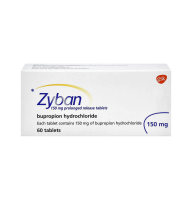Understanding Bupropion and Its Mechanism
Bupropion, commonly known by its brand names Wellbutrin and Zyban, is a medication primarily used to treat depression and anxiety disorders. It belongs to a class of medications known as norepinephrine-dopamine reuptake inhibitors (NDRIs). Unlike many other antidepressants, bupropion works by inhibiting the reuptake of norepinephrine and dopamine, two neurotransmitters linked to mood regulation. This unique mechanism can lead to different results compared to other antidepressants, particularly in the timeline of effectiveness. For those wondering how long does it take for bupropion to work, it’s essential to understand how this medication interacts with the brain and what factors influence its onset of action.
Initial Effects: What to Expect in the First Weeks
The question of when will bupropion start working is common among new users. In the initial weeks of treatment, some patients may begin to notice subtle changes in their mood and energy levels. However, the most significant improvements in depressive and anxiety symptoms typically take longer to manifest. During the first one to two weeks, it’s possible to experience side effects such as insomnia, dry mouth, and increased anxiety, which might mask the early positive effects of the medication. Despite this, these early side effects often subside as the body adjusts to the medication.
Week 4 to Week 6: Notable Improvements
For most patients, the bupropion depression relief timeline becomes more apparent around four to six weeks into treatment. At this stage, patients usually experience a marked reduction in the severity of depressive symptoms. The improvement in mood and daily functioning is more noticeable, although it may still vary depending on the individual. The time frame for bupropion effectiveness can be influenced by factors such as the dosage, the patient's overall health, and whether bupropion is being used in combination with other medications. During this period, many patients also report a decrease in anxiety symptoms, though the timeline for anxiety relief can sometimes lag behind the improvement in depressive symptoms.
When to Expect Full Benefits
While some improvement is typically observed within the first month, the full therapeutic benefits of bupropion may take up to 8 to 12 weeks to be fully realized. This is the period when the medication reaches its peak effectiveness, and patients often report significant relief from both depression and anxiety. It is crucial to maintain consistent use of the medication during this time to allow the full effects to develop. For those curious about how fast does bupropion help depression and bupropion working time for anxiety relief, understanding that patience and adherence to the prescribed regimen are key is important.
Factors Influencing the Onset of Action
Several factors can influence bupropion onset of action for anxiety and depression. Individual differences in metabolism, the severity of symptoms, and the presence of other medical conditions can all impact how quickly bupropion begins to work. Additionally, some individuals may be more sensitive to the effects of the medication, experiencing quicker relief, while others may require a longer period before noticing significant improvements. In cases where bupropion is prescribed as part of a combination therapy with other antidepressants or anxiety medications, the onset of action may also be affected by the interaction between these drugs.
Adjusting Expectations and Monitoring Progress
It’s essential for patients to have realistic expectations regarding bupropion results timeline depression. Regular follow-up appointments with a healthcare provider are crucial to monitor progress and make any necessary adjustments to the treatment plan. For some individuals, dosage adjustments or the addition of another medication might be required to achieve the desired results. During these consultations, it's important to discuss any concerns about the medication’s effectiveness or side effects with the healthcare provider. By maintaining open communication, patients can ensure that their treatment plan remains effective and aligned with their mental health goals.
Conclusion: Patience and Persistence Pay Off
In summary, while the timeline for how long does it take for bupropion to work can vary, most patients begin to notice improvements within the first few weeks, with full benefits typically emerging after several months of consistent use. Understanding the time frame for bupropion effectiveness can help manage expectations and encourage persistence with the treatment. For those struggling with depression and anxiety, bupropion offers a promising option, but patience and adherence to the prescribed regimen are essential to experiencing its full therapeutic potential.


